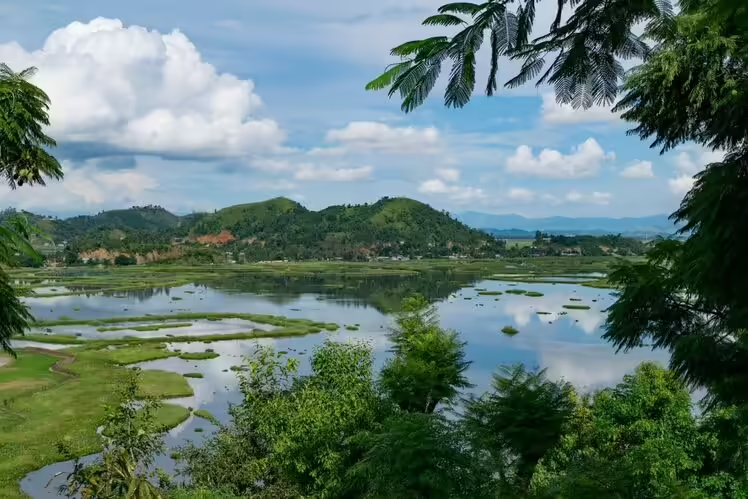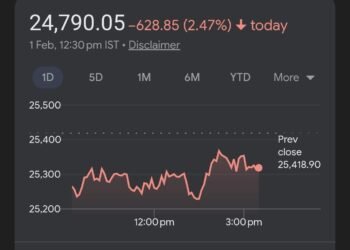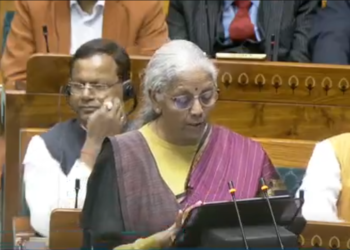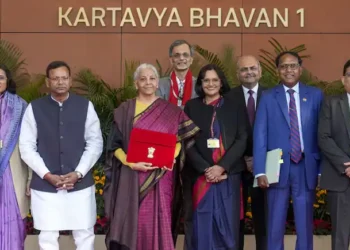HTC emphasizes transparency, consent-driven changes, and public participation to prevent disenfranchisement in the electoral revision process.
BY PC Bureau
October 1, 2025 – In a move that would effectively counter accusations of illegal immigration against Manipur’s tribal population, the Hill Tribal Council (HTC) of Moreh has extended full support to the Election Commission of India’s (ECI) Special Intensive Revision (SIR) 2025 of electoral rolls in the border town sub-division.
The decision comes as Meitei leaders intensify campaigns against alleged illegal immigration from Myanmar, urging tribals to back voter purges to safeguard indigenous rights—a call that has stoked fears of disenfranchisement among hill communities.
The HTC’s endorsement, outlined in a press note issued today by its Media and Information Cell, underscores a collaborative spirit with the district administration while emphasizing safeguards to ensure the drive—aimed at removing duplicates, deceased voters, and ineligible entries—does not alienate the very people it seeks to protect.
READ: Zubeen Garg Death Probe: Will Arrests Lead to Dark Secrets?
Moreh, a bustling trade hub on the India-Myanmar frontier in Tengnoupal district, has long been a flashpoint for migration concerns, making the SIR a high-stakes exercise in balancing security with equity.
A Bridge Over Ethnic Divides
The SIR 2025, part of a nationwide ECI initiative to purify voter lists ahead of key polls, has gained urgency in Manipur following the Bihar controversy, where over 47 lakh names were deleted amid opposition cries of “vote theft.”
In Manipur, under President’s Rule since February, the revision aligns with demands for a National Register of Citizens (NRC)-like mechanism, particularly from valley-based Meitei groups accusing porous borders of enabling undocumented migrants to infiltrate rolls.
READ: Opinion: Will BJP Walk the Talk as PK Puts it Morality on Trial
Key Recommendations for a ‘Grievance-Free’ Drive
While supporting the enumeration effort, the HTC outlined five critical points to streamline the process and prevent post-revision backlash:
- Public Awareness and Participation: Citizens must proactively present all eligible family members (18+) to Booth Level Officers (BLOs). The council credited social media campaigns but urged targeted information drives in polling areas to ensure no eligible voter is missed.
- Scrutiny of BLO Appointments: The HTC criticized the deployment of some Anganwadi workers as BLOs, arguing they “lack the requisite capacity” for error-free verification, and called for immediate cross-checks by higher authorities.
- Consent-Driven Changes: Deletions, omissions, or transpositions in the rolls should only occur with the explicit knowledge and approval of village chiefs and family heads to prevent surprise exclusions.
- Vigilance from All Sides: Both the public and BLOs must stay alert to prevent oversights. The HTC committed to on-ground monitoring to maximize enrollments in its zones.
- Ongoing Collaboration: The council pledged continued partnership with the government and residents on all SIR-related matters, from appeals to verifications.
Plea for Extension: ‘Don’t Rush the Right to Vote’
In a pointed finale, the HTC urged the ECI, via the Tengnoupal district administration, to extend the SIR timeline in Moreh Sub-Division. “In the public interest, prolong the drive to guarantee every citizen’s voting rights,” it stated, citing logistical hurdles in remote hill pockets and the need for thorough outreach amid monsoon disruptions and security curbs.
The plea resonates in a region where tribal turnout has historically lagged due to terrain and conflict. Manipur’s Chief Electoral Officer has already rolled out BLO trainings and party consultations since July, with draft rolls expected soon. The state could see full SIR rollout by year-end, potentially paving the way for early assembly polls if President’s Rule lapses.













